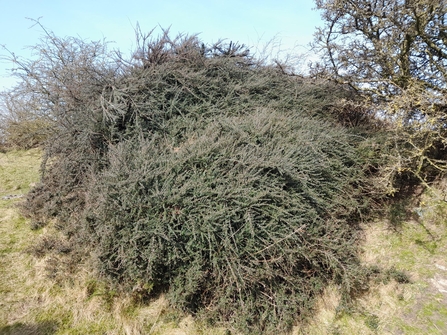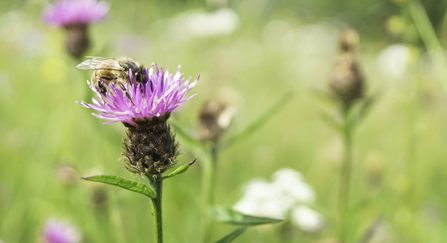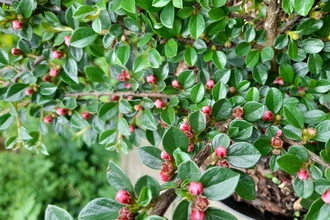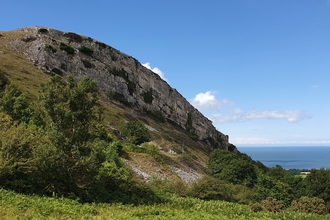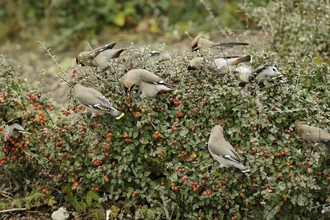The challenge
Sadly, 90% of our semi natural grasslands have declined since the 20th century. Remaining areas are now often small in size and highly fragmented, having devastating effects on our local wildlife. The invasion of non-native cotoneaster has contributed to the decrease in suitable grassland habitats and is now recognised as one of the top ten species to negatively impact protected sites in Wales. Cotoneaster is a Schedule 9 species and is illegal to plant or cause to grow in the wild. Typically, this invasive is unintentionally spread by birds eating cotoneaster berries from our gardens and consequently spread across our cherished landscapes.

